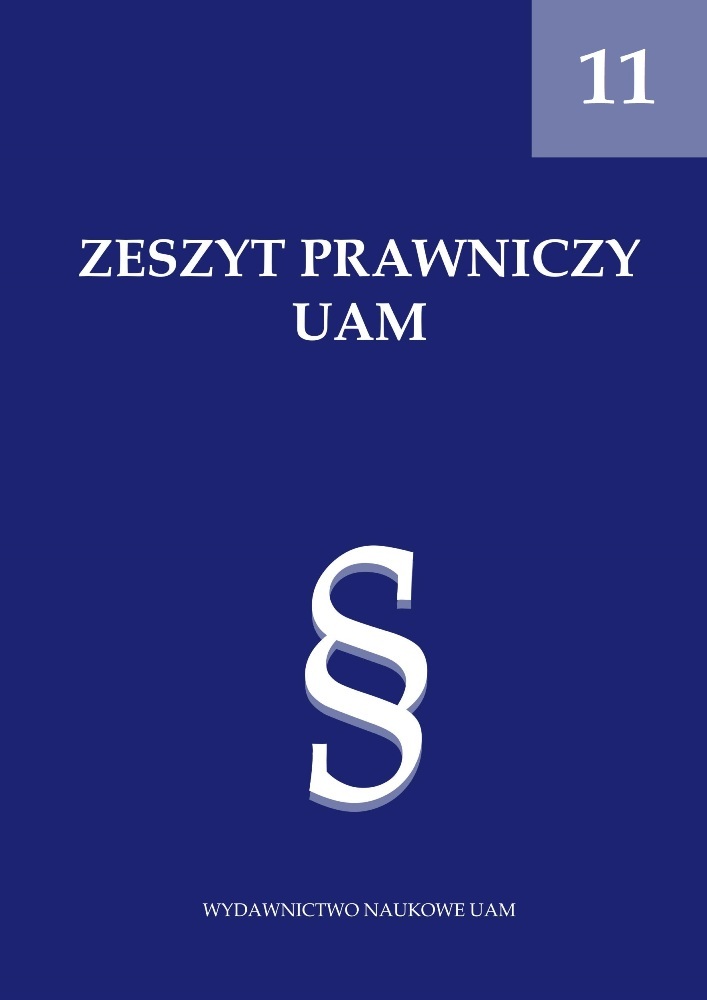Abstract
The needs of modern world require the state to active participation in economic turnover to execution public tasks. One of the forms state economic activity are commercial companies with the state shareholding. The autor analized chosen problems connected with the state shareholding in companies. Presented problems arise from possibility of conflict of the interest of the state fulfilled by the State Treasury and the interest of company, which should be fulfilled by its organs. The autor introduced concept of the state interest and presented ways of its fulfillment in companies with the state shareholding. Moreover the article addresses the problem of instruments, that private law and public law provide stationes fisci of the State Treasury to ensure execution public interest by companies with the state shareholding. An important issue explained by the autor is liability of management board members, who acting in accordance with the state interest, violated the company‘s interest. Against the background of the above considerations, there is a question of compliance with the European Union law of regulations providing for special instruments of the State Treasury for ensure execution public tasks, which can lead to discourage new investors from participating in the company.
References
Daszkiewicz, A. (2020). Komentarz do art. 9, [w:] A. Daszkiewicz, Zasady zarządzania mieniem państwowym. Komentarz. Warszawa: Lex/el.
Gawlik, Z. (2015) Skarb Państwa jako shadow shareholder - czy Skarb Państwa może w kontrolowanej przez siebie spółce usunąć się w cień? [w:] A. Kidyba (red.) Spółki z udziałem Skarbu Państwa a Skarb Państwa. Warszawa: 29 i n.
Gębusia, I. (2017). Interes spółki w prawie polskim i europejskim. Warszawa: 370 i n.
Kappes, A. Matysiak, W.P. (2015). Interes spółki a cel spółki, [w:] A. Kidyba (red.) Spółki z udziałem Skarbu Państwa a Skarb Państwa. Warszawa: 67.
Kappes, A. Matysiak, W.P. (2015). Pojęcie interesu państwa, [w:] A. Kidyba (red.), Spółki z udziałem Skarbu Państwa a Skarb Państwa. Warszawa: 61.
Matysiak, W.P. Katner, W.J. (2015). Warunki prawne uczestnictwa państwa w gospodarce III Rzeczypospolitej, [w:] A. Kidyba (red.), Spółki z udziałem Skarbu Państwa a Skarb Państwa. Warszawa: 85.
Nowacki, A. (2018). Komentarz do art. 207, [w:] Nowacki, A. Spółka z ograniczoną odpowiedzialnością, t. 1: Komentarz do art. 151-226 KSH. Warszawa: 15.
Nowacki, A. (2018). Komentarz do art. 219, [w:] Nowacki, A. Spółka z ograniczoną odpowiedzialnością, t. 1: Komentarz do art. 151-226 KSH. Warszawa: 15.
Opalski, A. (2008). O pojęciu interesu spółki handlowej. Przegląd Prawa Handlowego 11: 16-23.
Piechowiak, M. (2016). Komentarz do art. 1, [w:] M. Safjan, L. Bosek (red.), Konstytucja RP. Komentarz. Warszawa: 97-120.
Stahl, M. (2009). Dobro wspólne w prawie administracyjnym, [w:] J. Boć, A. Chajbowicz (red.), Nowe problemy badawcze w teorii prawa administracyjnego, Wrocław: 47.
Szajkowski, A. Tarska, M. Szumański, A. (2013). Komentarz do art. 368, [w:] S. Sołtysiński (red.), Kodeks spółek handlowych, t. 3: Spółka akcyjna. Komentarz. Warszawa: 5.
License
Copyright (c) 2021 Sebastian Michalak

This work is licensed under a Creative Commons Attribution 4.0 International License.

